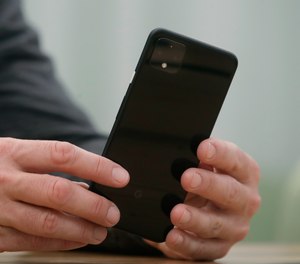By Joseph Bustos
The State
BISHOPVILLE, S.C. — Hundreds of illegal cellphones that South Carolina officials say can be used to coordinate criminal activity in prison have been successfully disabled by state prison officials in two months.
As part of a first in the nation pilot program, prison officials have worked with cellphone providers to shut off cellphones corrections officers have found.

S.C. prison officials are working with carriers to shut off cellphones corrections officers have found. (AP Photo/Jeff Chiu)
The South Carolina Department of Corrections started piloting the program in late July and says it has disabled 790 contraband cellphones at Lee Correctional Institution. The Bishopville facility has 1,080 inmates.
Prison officials use a contraband interdiction system to identify signals coming from cellphones operating inside prison walls. The system identifies a phone’s international mobile equipment identity, which is then turned over to cellphone service providers.
Agency Director Bryan Stirling credited AT&T, T-Mobile, Verizon and other phone companies for disabling phones once they were discovered.
Prison officials say inmates use the phones to communicate with people outside and order attacks on prison employees other or run criminal activities.
Without the cellphones, prisoners are unable to call people on the outside to use drones to drop off contraband, such as marijuana, tobacco and even more cellphones.
“They are able to coordinate drone drops. They’re able to intimidate staff,” Stirling said. “They reach out and get it, and they distribute. That leads to violence inside. That leads to intimidation. That gives the gangs power. That gives the gangs money.”
Corrections officials a told panel of state House and Senate members that the agency plans plan to ask state budget writers for additional dollars to expand the program to state’s 20 other prisons. The amount of the request has yet to be determined but is expected to be multiple millions of dollars, said corrections spokeswoman Chrysti Shain.
In the months since the program started, the number of legitimate phone calls, which are monitored by the prison officials, have increased by 57%, Stirling said.
For years, the Department of Corrections has wanted the ability to jam cellphone signals around prisons, but federal law prohibits the practice, and federal legislation to allow it has not moved in Washington.
The Federal Communications Commission, however, has approved the disabling approach and approved South Carolina’s pilot program last year. South Carolina started its program July 26.
“I think we have a solution,” Stirling said.
©2023 The State.
Visit thestate.com.
Distributed by Tribune Content Agency, LLC.
This post was originally published on this site be sure to check out more of their content.






